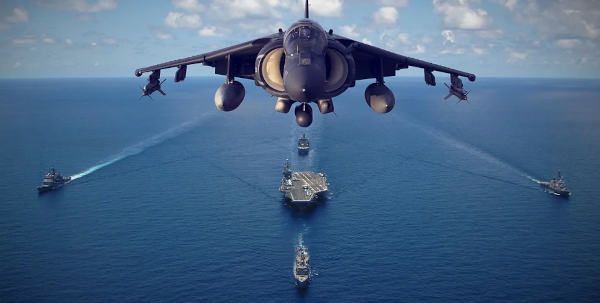Unrealistic Aspiration or Unnecessary Gold-Plating?
The UK Ministry of Defence (MoD) has put the brakes on the Air Support to Defence Operational Training (ASDOT) programme – some six months after an initial contract had been expected and barely a year before the programme was supposed to start delivering training.
The exact detail of reasons for the decision (and, to be frank, of the decision itself) are scarce right now. But there is a great deal of speculation arising from the leaked announcement – some of it better informed, some of it not so much. MTSC understands the situation to be as follows – though we will be pursuing this story over the next several days.
ASDOT was intended to provide the British armed forces with adversarial air combat training – an area in which there has been a huge upsurge of interest and a not inconsiderable investment by government and industry alike in several nations – notably the US, Canada, Australia, Germany and, till this week, the UK. The idea was to consolidate a number of disparate training programmes into a cohesive, contractor-owned, contractor-operated programme as component legacy solutions came to their expiration dates. A coherent provision of services ranging from aggressor training through electronic warfare readiness training promised much and – to be honest – was a very good idea. The contract attracted great interest from industry and bids were submitted by several teams, including those led by Babcock, Cobham and Leonardo.
The problem, MTSC understands, revolved around the MoD’s expectation of what it could get for its money, compared with what industry was able to provide. While there are no official figures available, it seems that MoD aspired to providing a broad-spectrum and cost-effective service – one that would save money by comparison with the legacy solutions it would replace – at a total cost that has been reported as being between £495 million over 10 years up to $1.6 billion (£1.2 billion) over 15 years if options were to be executed. Reports – some of which actually seem to be reliable – indicate that MoD had a degree of ‘sticker shock’ when bids were submitted last year, with all the bids coming in considerably higher than had been anticipated. There has been a period of assessment and evaluation and now an apparent decision to at least postpone the programme – with some sources suggesting outright cancellation is likely.
That would be a huge error and one with significant potential impact. ASDOT was a good idea, inspired by a real need which has not gone away. Nobody argues (seriously) that the issue of spending taxpayer money on outsourced services needs careful consideration. The MoD – like every other organ or agency of government spending public money – has a fiduciary responsibility to ensure maximum value and efficiency accrues to the solutions put in place. From that perspective, the decision to postpone finalising a contract – in order to evaluate whether the aspiration was in error of the proposed solutions are too ‘fancy’ (and therefore too expensive) to suit the requirement – was absolutely the right one to take.
Moving forward, however, there needs to be a robust assessment and decision process put in place right now. With the benefits of the UK Military Flying Training System (MFTS) beginning to work their way through (despite a goodly amount of criticism, some of which is justified) and the emergence of a carrier strike capability for the first time in three decades, the needs of all three military services are quite significant and are not going to go away. ASDOT – or something very similar – is a necessary adjunct to the programmes, capabilities and investment already in place or mooted for the UK’s air power training regime. A decision will be required soon to determine how to a) deliver an affordable solution in which industry can provide the required effect at rates that allow them to recoup the investment they must make and the risk they must carry and b) ensure the British armed forces retain their competitive advantage. Time, as is always the case, is the existential threat.
























